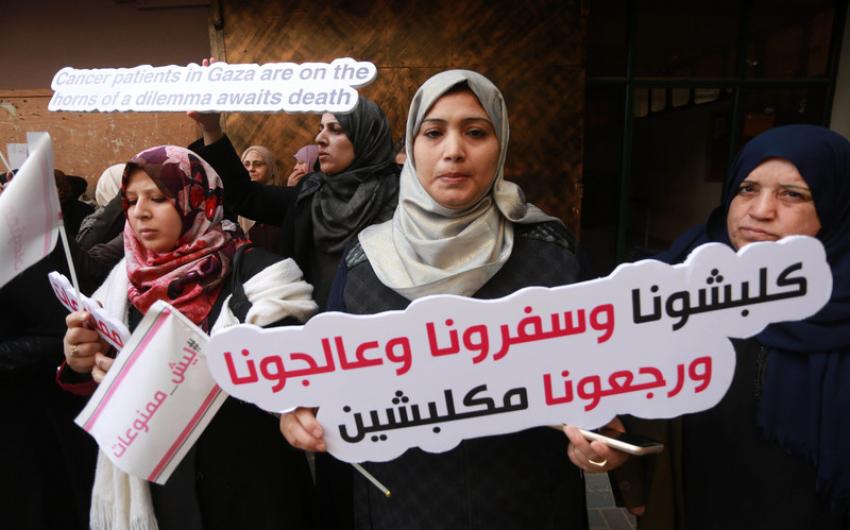Faten Ahmed was a 26-year-old with a rare form of cancer. She died in August while awaiting an Israeli permit to travel for chemotherapy and radiotherapy not available in the Gaza Strip, which has been subjected to a crippling Israeli siege since 2007.
She had previously missed eight hospital appointments after Israeli “security approval” was delayed or denied, according to the World Health Organization (WHO).
Ahmed was one of five women who died from cancer in that month alone while waiting for Israeli permission that never came. Overall, 46 of the 54 who died last year waiting for permits were cancer patients.
This staggering toll highlights the lethal impact of Israel’s ever-tightening siege on the 2 million people who live in Gaza.
Aimee Shalan, CEO of Medical Aid for Palestinians, said on February 13: “We’re seeing Israel increasingly deny or delay access to potentially life-saving cancer and other treatment outside Gaza, with shockingly high numbers of Palestinian patients subsequently dying, while Gaza’s healthcare system — subjected to half a century of occupation and a decade of blockade — is decreasingly able to meet the needs of its population.”
Her charity, along with Amnesty International, Human Rights Watch, Al Mezan Center for Human Rights and Physicians for Human Rights Israel, has issued an urgent call on Israel to “lift the unlawful sweeping restrictions on the freedom of movement of people from Gaza, most critically those with significant health problems”.
In 2017, Israeli occupation authorities approved just 54% of applications for permits to leave Gaza for medical appointments. This is the lowest rate since the WHO began collecting data in 2008. Israel’s approval rate for permits has fallen dramatically from 92%.
The health and human rights groups note that the United Nations and the International Committee of the Red Cross have declared Israel’s land, sea and air blockade on Gaza, preventing the movement of its population, to be “collective punishment” — a war crime.
The groups calling on Israel to lift its restrictions also note that Egypt and the Ramallah-based Palestinian Authority have played a role in worsening the situation: “Egypt has kept the Rafah crossing mostly closed for the population in Gaza since 2013, which contributed to restricting access to health care.
“As a state bordering a territory with a protracted humanitarian crisis, Egypt should facilitate humanitarian access for the population. Nevertheless, ultimate responsibility remains with Israel, the occupying power.”
Read the full article written by Ali Abunimah at Green Left Weekly.

